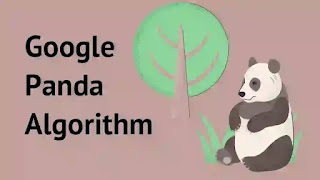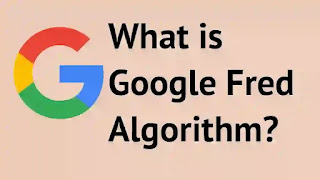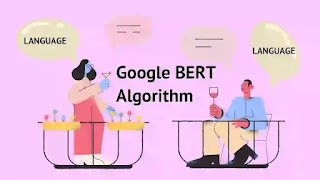Google Algorithm updates which impacted SERPs
Google always updates their algorithms often in order to give a better
search result experience to their users. These updates may replace
the old algorithms or enforce use the new algorithms in the
search. Till now, there are many
core and unnoticed updates are happened in the Google.
Generally, many algorithms are the algorithms of other algorithms.
Sounds weird. There may be a top controlling algorithm running in
the system and many sub division algorithms run under the control of the top
algorithm. Data are driven from the underlying algorithms to the top
algorithm.
Some of the updates are not announced by Google officially but there are
many webmasters who will find them by seeing their web analytics.
List of important Google Algorithm updates:
We are going to discuss the algorithms which played a
major role in changing the SERPs (Search Engine Result Pages) of
Google.
- Google Caffeine update
- Google Panda Algorithm
- Google Penguin Algorithm
- Google Fred Algorithm
- Google Hummingbird update
- Google BERT Algorithm
- Google RankBrain Algorithm
- Google Mobilegeddon update
- Google Pigeon update
Google Caffeine Update:
In June 2010, Google launched the Caffeine update. It is not an algorithm update, it is a new web indexing system. It is a rebuild
of web indexing system by Google.
In the starting period of the internet, there were only a few websites.
But now billions of webpages are available on the
internet with a lot of multimedia content like video, audio, images
etc.,
So this update will index fresh webpages when they are created.
Many new webpages are created in every minute and many are updated in every
second. So Google made many crawler bots. Some crawlers will index
the page, some will reindex the updated page. Now Google is able
to index fresh content in seconds.
Google Panda Algorithm:
In 2010, a lot of user-generated and thin content floated across the web.
Many websites published thousands of user-generated articles per day (called "Content Farms") and moving top in the SERP by using
advertisements, black hat SEO, keyword stuffing but all the articles are having less informative
content.
Many are complaining about this. So, in
February 2011, Google launched
a new algorithm called Panda.
This algorithm will check for good quality content across the web or we
can say content with information relevant to the user query, without
spelling mistakes, without any spam links. This algorithm stopped
the content farms and who followed black hat SEO and helped to push high quality
content in the SERPs. Before creating this algorithm, Google had
taken the feedback from the human quality raters. By using all of
these, the Panda algorithm was created.
In addition, Panda works jointly with other algorithms to give the best results in SERPs.
Since the launch of the Panda algorithm, it has got many updates and data
refresh. And finally, in January 2016, Google incorporated
Panda into its core algorithm. Many signals from the Panda algorithm are used by other algorithms to fix the ranking in Google.
So, in order to stay in the ranking position, you should make good
quality content for the users.
Google Penguin Algorithm:
In
April 2012,
Google launched the Penguin algorithm. This update from Google is
fully focused on the spam links in the websites. That is irrelevant
backlinks for a website. Following the Panda, Penguin helped more to degrade websites who are using
black hat SEO.
Many are using low quality backlinks to rank their sites but Penguin
update detect the incoming links from websites and degrades the sites
with low quality backlinks. Then this algorithm has got many
updates to increase its efficiency and finally in September 2016, it was added to the part of the Google core algorithm.
If you have a poor quality backlinks then you should check that if
you need to disavow those links or not. After disavowing, you should
not trust that you should gain your rank. You should consistently
try to gain good quality backlinks and focus on improving your
content.
Till now, the Penguin algorithm has helped to fight against spam links.
Also learn about Google sandbox and Google Honeymoon effect
Google Fred Algorithm:
According to Gary Illyes (Webmaster Trends Analyst at Google), Fred is the name given to every update which Google doesn't give
the update name.
This update was rolled out on March 7, 2017. What this update done for the website ranking?
This algorithm is mainly focused on the websites which have less
content with heavy ad loaded. Too many ads and poor quality
content are mainly noticed by this update. Also aggressive
affiliate links in many websites are suddenly impacted by this
update.
The main purpose of this Fred algorithm is to reduce the thin content
and poor quality links.
So make sure you added minimum number of ads when compared to your
content.
We cannot able to say all other unnamed updates since now are called as Fred.
Google Hummingbird Update:
In
September 2013,
Google launched the Hummingbird update. After this update, searching
is easier in Google than ever. Because this update gives better
search results by understanding the human intent.
By using natural language processing, it gives
conversational search to the users by understanding the motive behind the search for both short and long tail keywords. Also if a
user search something wrong in google (he/she didn't have knowledge in
that topic) then this algorithm helps to show the correct answer to the
users.
For example, if a user searches for the President of England but England does
not have a President then Google shows about the Prime Minister of
England. This is what Google corrects like a human.
The understanding of user intent helps to give
local search results. When you search for the best Indian
restaurants in America then it shows good Indian restaurants near you by
using your location.
This update gives good results by using many things which includes
Knowledge Graph, fresh content etc., it gives a major push to many
websites who are giving relevant content to the users.
Google BERT Algorithm:
In October 2019, Google rolled out the BERT algorithm. BERT (Bidirectional Encoder Representations from Transformers) is a
deep learning natural language processing algorithm which is able to
understand the human language with all nuances of context.
Users can type naturally in google search even if they make errors,
this algorithm will help to correct those errors. It analyses the search queries and understands the correct context of the words
and helps to show relevant answers to the search. It helps to
show correct rich snippets in SERPs.
So it is a big update to Google algorithm, it solves many complex
search queries. It is open sourced later by Google.
Google RankBrain Algorithm:
After the Hummingbird update, Google RankBrain algorithm helped to improve how google sees the search
queries. It was launched in 2015. It uses machine learning to
understand the search queries of users and improves the intent
behind the search queries.
Rankbrain is a huge concept, it is one of the core algorithms of
Google. After the RankBrain algorithm, google sees the text in
search as a "entity" not a "string".
An entity may be anything that google sees across the web and compares
the values and shows the top relevant results. Each entity has
an unique ID to identify what are they.
For example, when I search for "Rock" I will get the results about
"Dwayne Johnson". When I search for "famous Rock movies" I will
get the list of movies of Dwayne Johnson. So Google sees the
words as entities and collects the related data between those entities
and shows the more confident results in the SERP.
People are searching for "Rock" to know about Dwayne Johnson. So Google gets data from these entities and it has confidence on that particular search and assumes that the intent behind the search is Dwayne Johnson. So it shows the result and analyses the result.
If it is wrong means then it alters the SERP and gives the better SERP based upon the
users. If I search for a different query then it compares the
previous queries which are similar to this query and shows the relevant
results based upon the location and situation.
Google Mobilegeddon Update:
Google Mobilegeddon update is a mobile friendly update. It was
launched by Google in April 2015 and impacted most of the non-mobile sites.
This update gives a good user experience to the mobile users.
Most of the people are having desktop sites only so after this update
everyone started to create mobile pages for their websites. So
after this update, mobile friendly sites will show in SERPs in mobile
phones.
After creating a responsive design for websites, the two versions of the website (desktop and mobile) will impact the page loading speed for mobile users. So loading speed is also considered
to go top in SERP for the mobile searches. So, now mobile
first pages and good loading speed are mandatory for Google.
Google Pigeon Update:
In July 2014, Google launched the Pigeon
update.
This update helps to improve the local search based upon your
location. All local small businesses are shown on the
Google SERPs. In this scenario, Google Maps plays an important
role. When you search "coffee shop nearby me" in google, it
shows the results with google map.
First, the update comes with some errors. After those errors are fixed, the
user ratings for the local shops are considered as an important signal to
appear in the first page of SERPs.
In February 2012 - Google Venice update. It is also a local search update but it is prior to the pigeon update.In September 2016 - Google Possum update (Officially unconfirmed update by Google). It decides when to show local businesses in search and when to filter it out.
Conclusion:
I have covered most of the main Google algorithm updates here. But there are many
core and minor updates happening in Google every month. Keep an eye on the updates and the improvements to searches and do regular work in your website to stay in the
top position in the search engines.
-----------------------------------------------------------------------------------------------------------
Content Last updated on 18th February 2022, 10:30 PM IST











Post a Comment